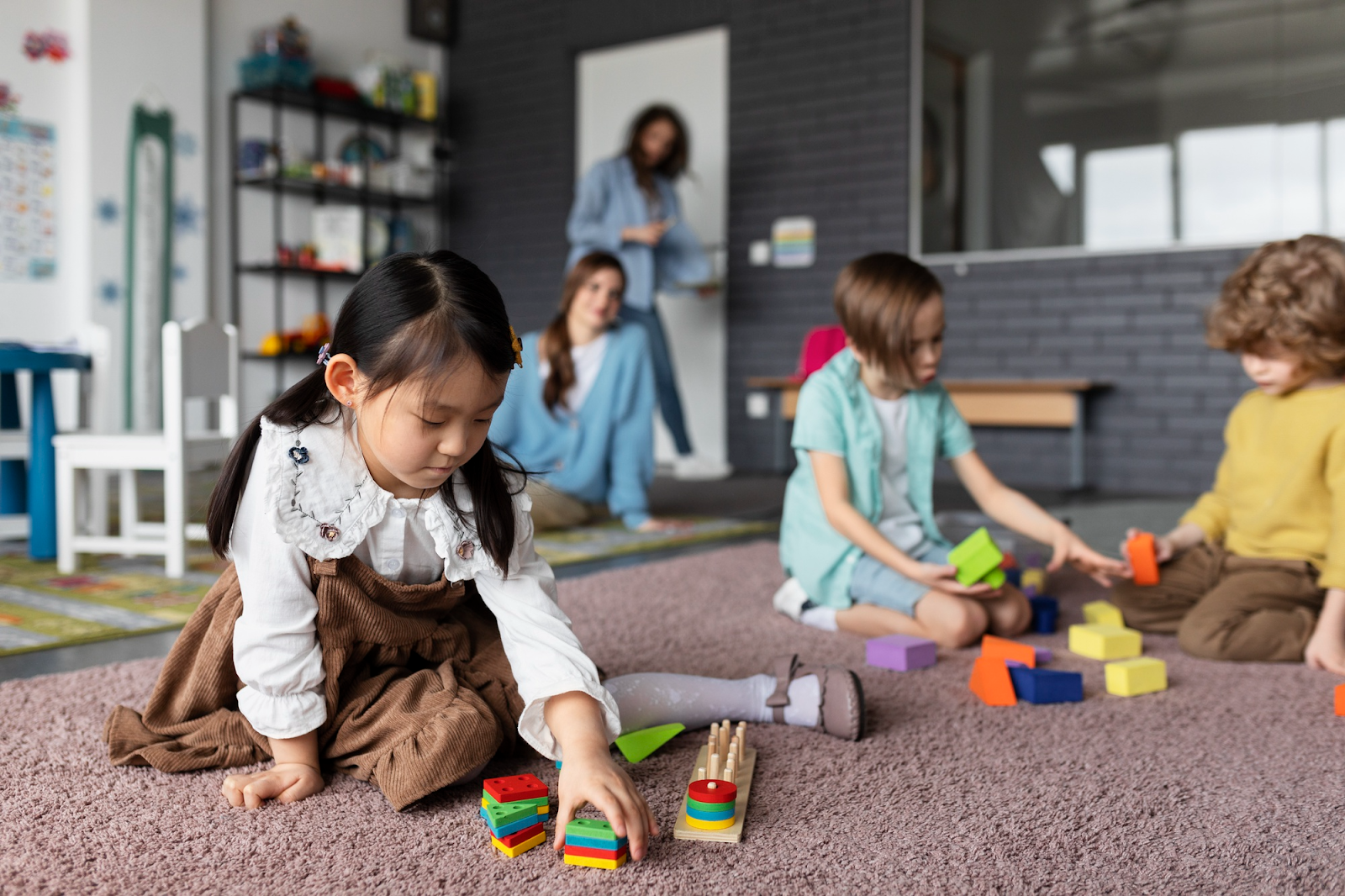“The goal of early childhood education should be to activate the child’s own natural desire to learn,” said Maria Montessori, the Italian doctor and educator who advocated for a child-focused approach to learning. Her work led to a significant shift in educational thinking, and as a result, more than 60,000 schools around the world are using the Montessori method.
The question arises: Should you enroll your child in a Montessori academy? Here are four reasons you absolutely should:
It Focuses on Hands-On Learning
One of the most important benefits of enrolling your child in a Montessori academy is access to hands-on education. The Montessori approach advocates that children understand concepts best when they actively engage with them. Therefore, instead of relying on worksheets and lectures, the day is spent on hands-on activities.
For instance, your little one might grasp math concepts through beads or learn to form words with letter tiles. Moreover, children learn to stack, sort, and manipulate objects to build core concepts.
Your child will learn maths, geography, language, and other subjects, but in a way that ignites their sensory and cognitive abilities.
It Fosters Independence in Children
At a Montessori academy, teachers act as guides rather than traditional instructors. They don’t stand in front of a chalkboard with a prepared lesson plan on how to sing the ABCs. Instead, teachers foster an environment where curiosity and freedom are given top priorities. Lessons are often individualized, allowing each student to progress at their own pace.
Moreover, every child contributes to their learning journey. They set up their workspace, return materials after use, and manage their time, which helps them build responsibility and self-discipline. Classrooms in a Montessori preschool have easily accessible materials so students can choose activities without waiting for constant teacher direction.
It Teaches Social Skills
The Montessori method heavily emphasizes building social skills in children. As a result, a Montessori classroom creates an environment for natural social development.
Teachers use Grace and Courtesy exercises to give examples of the language used in certain social situations. This includes making eye contact and using polite terms like “thank you,” “please,” and “excuse me.”
The environment also encourages children to see themselves as part of a larger social unit. This fosters empathy and concern for the well-being of others.
Your child’s entire day is structured in a way that promotes collaboration. For instance, through shared activities, students learn to take turns, share materials, and resolve small conflicts respectfully.
It Enhances Curiosity
As hinted earlier, a Montessori academy allows children to take control of their educational journey. As a result, they perceive education as something to be enjoyed rather than endured.
Students are encouraged to ask questions and investigate answers. This will support your child’s cognitive development, leading to enhanced critical skills, decision-making, and problem-solving.
The best part? Your child is more likely to develop a lifelong love for learning. They will learn because they want to, not because they have to.


